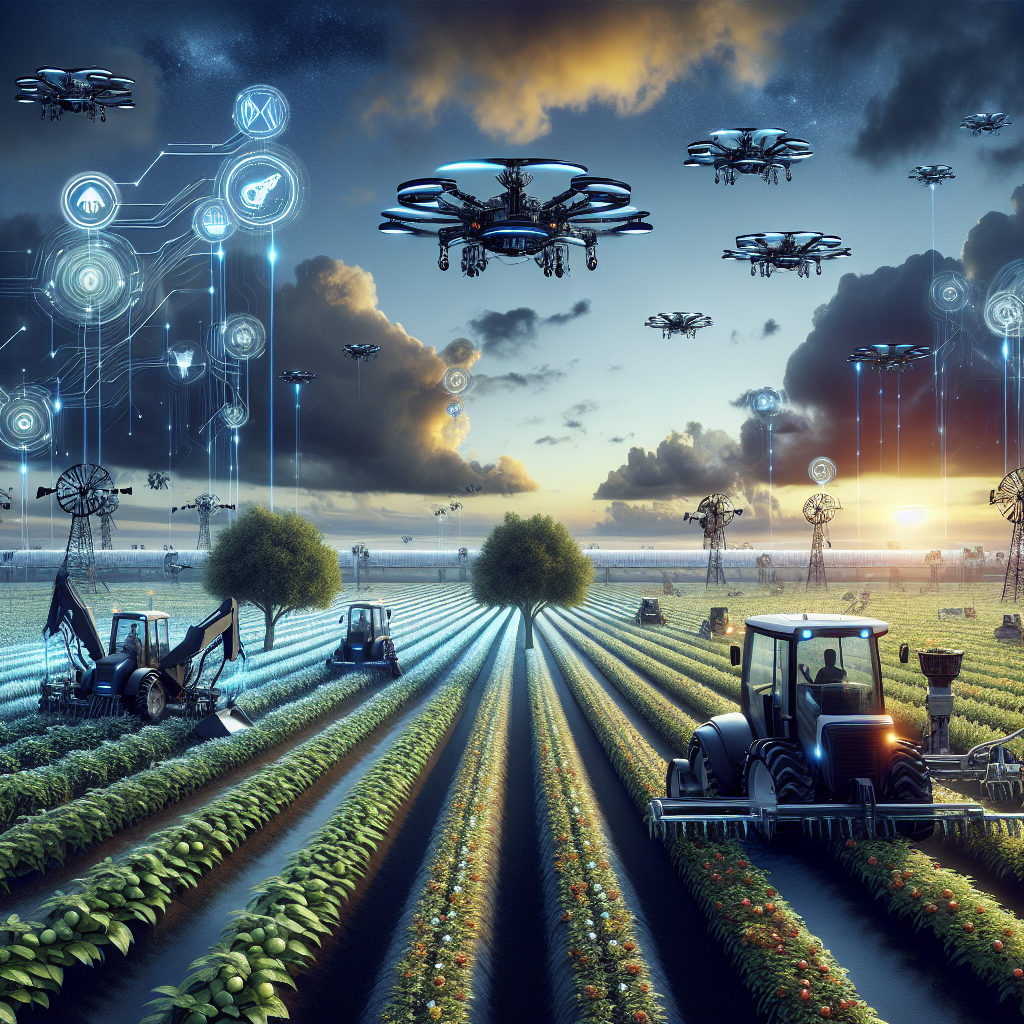In recent years, the use of artificial intelligence (AI) platforms in agriculture has been gaining traction as farmers look for ways to increase efficiency, productivity, and sustainability in their operations. AI platforms have the potential to revolutionize the way farmers manage their fields, make decisions, and optimize resources. In this article, we will explore the various applications of AI in agriculture and the benefits it can bring to the industry.
One of the key areas where AI platforms are being utilized in agriculture is in precision farming. Precision farming involves using technology to tailor farming practices to specific areas of a field, rather than applying a blanket approach across the entire field. This allows farmers to optimize inputs such as water, fertilizers, and pesticides, resulting in higher yields and reduced costs. AI platforms can analyze data from sensors, drones, satellites, and other sources to provide farmers with insights into soil health, crop growth, and pest infestations. By using AI platforms, farmers can make data-driven decisions that lead to more efficient and sustainable farming practices.
Another area where AI platforms are making an impact in agriculture is in crop monitoring and management. AI algorithms can analyze images of crops taken by drones or satellites to identify areas of stress, disease, or pest infestation. This information can help farmers take action quickly to address these issues before they spread and cause significant damage to the crop. By monitoring crops in real-time, farmers can also track the progress of their fields and make adjustments to their management practices as needed. This can lead to higher yields, better crop quality, and reduced losses.
AI platforms are also being used in predictive analytics to help farmers make better decisions about when to plant, irrigate, fertilize, and harvest their crops. By analyzing historical data on weather patterns, soil conditions, and crop performance, AI algorithms can predict future outcomes and recommend optimal strategies for farmers to follow. This can help farmers mitigate risks, maximize yields, and improve profitability. Predictive analytics can also help farmers plan for the long term by identifying trends and patterns that can inform their decision-making process.
In addition to precision farming, crop monitoring, and predictive analytics, AI platforms are also being used in other areas of agriculture such as livestock management, supply chain optimization, and market forecasting. AI algorithms can analyze data on animal health, feed consumption, and breeding patterns to help farmers improve the efficiency and productivity of their livestock operations. AI platforms can also optimize supply chain logistics by predicting demand, managing inventory, and reducing waste. By analyzing market trends and consumer preferences, AI algorithms can help farmers make informed decisions about what crops to plant and when to sell them for the highest price.
Overall, the use of AI platforms in agriculture has the potential to revolutionize the industry by increasing efficiency, productivity, and sustainability. By leveraging the power of AI algorithms to analyze data, farmers can make better decisions, optimize resources, and improve their bottom line. As the technology continues to evolve and become more accessible, we can expect to see even greater advances in the use of AI in agriculture in the coming years.
FAQs:
Q: What are some examples of AI platforms used in agriculture?
A: Some examples of AI platforms used in agriculture include FarmWise, Blue River Technology, and Taranis. These platforms use AI algorithms to analyze data from various sources such as sensors, drones, and satellites to provide farmers with insights into their fields and crops.
Q: How can AI platforms help farmers increase efficiency?
A: AI platforms can help farmers increase efficiency by providing them with real-time data on soil health, crop growth, and pest infestations. By using this data to make informed decisions, farmers can optimize their inputs, reduce waste, and improve their overall productivity.
Q: Are AI platforms expensive to implement?
A: The cost of implementing AI platforms in agriculture can vary depending on the size of the operation and the complexity of the technology. However, as the technology becomes more widespread and accessible, the cost is expected to decrease over time.
Q: What are some of the challenges of using AI platforms in agriculture?
A: Some of the challenges of using AI platforms in agriculture include data privacy concerns, regulatory hurdles, and the need for specialized skills to operate the technology. However, as the technology continues to evolve, these challenges are expected to be addressed through partnerships, training programs, and industry standards.
In conclusion, the use of AI platforms in agriculture has the potential to revolutionize the industry by increasing efficiency, productivity, and sustainability. By leveraging the power of AI algorithms to analyze data, farmers can make better decisions, optimize resources, and improve their bottom line. As the technology continues to evolve and become more accessible, we can expect to see even greater advances in the use of AI in agriculture in the coming years.

